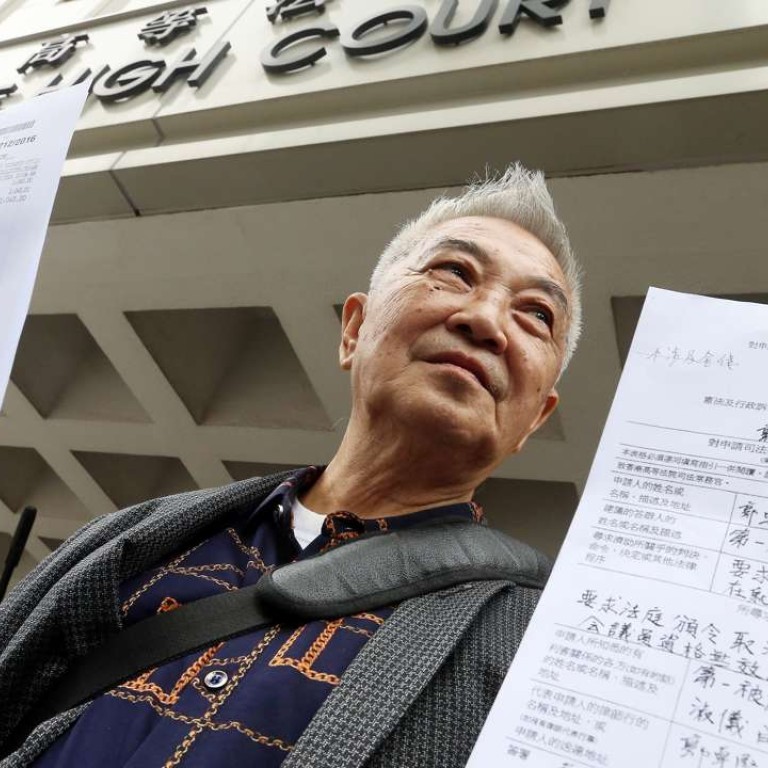
Hong Kong Legco president and two more lawmakers’ oaths under legal challenge by ex-civil servant
Kwok Cheuk-kin is seeking yet another judicial review, this time against Andrew Leung’s nationality and the allegiances of Lo Wai-kwok and Regina Ip
A retired Hong Kong civil servant known for his legal challenges against the government has taken on two pro-establishment lawmakers and the president of the Legislative Council in a new twist to the oath-taking saga.
Lawmakers Lo Wai-kwok and Regina Ip Lau Suk-yee, Kwok further argued, once pledged allegiance to the United Kingdom and its queen, suggesting that they could not be “truthful” when they undertook their Legco oath to serve Hong Kong and Beijing.
Yau and Leung, with student activist Joshua Wong Chi-fung, have urged America’s president-elect Donald Trump to keep an eye on the city, although he is set to take a US-centric approach to global affairs. At the height of the Occupy protests in 2014, Trump tweeted: “President Obama should stay out of Hong Kong protests, we have enough problems in our own country! Can’t even properly police White House.”
On his grounds against the Legco president, a former British national, Kwok wrote in his writ that according to the nationality law, China did not recognise dual nationality.
He told reporters that Leung’s Chinese citizenship should have been revoked when he took up his British one.

“Now, tell Leung Kwan-yuen to show me proof [of his Chinese citizenship],” Kwok said.
As for Kwok’s other Legco targets, engineering sector lawmaker Lo pledged allegiance to the UK when he became a British citizen, Kwok added in the writs, while Ip, who became director of immigration in 1996 under the rule of the British government, swore allegiance to the queen then.
Lo hit back and said Kwok’s challenge was groundless, citing that it had always been in the Basic Law and Legislative Council Ordinance that 20 per cent of lawmakers for the functional constituency were allowed to possess rights of abode in a foreign country.
Ip said she was not required to pledge allegiance to the queen when she took the top immigration post, countering that Kwok was “factually groundless”.
Last week, the court ruled in favour of the government against Yau and Leung from Youngspiration, ordering them be disqualified as lawmakers for referring to China in derogatory terms during their oath-taking ceremony on October 12.
The court also granted permission to a pro-Beijing student to challenge another localist lawmaker, Lau Siu-lai, who read her oath too slowly.
Ivan Mok Ka-kit, who submitted his application for legal aid on Monday, vowed to go after Lau, even if the legal subsidy granting department refused to grant him funds. “Perhaps I would argue in court myself,” he said.
He said “just like Leung Chung-hang and Yau Wai-ching”, he would not rule out going bankrupt if he lost and had to shoulder legal fees that could amount to millions of dollars.

